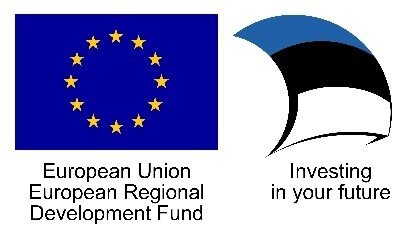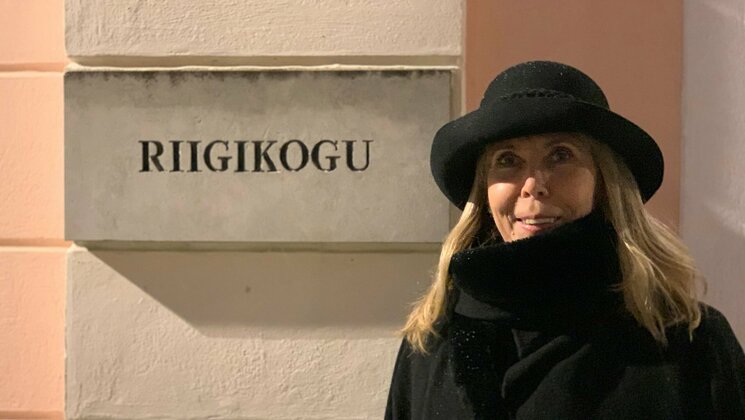-
Humanitaarteaduste ja kunstide valdkondHumanitaarteaduste ja kunstide valdkonna dekanaatJakobi 2 ruumid 116–121, 51005 Tartu linn, EST0Ajaloo ja arheoloogia instituutJakobi 2 51005 Tartu linn, Tartu linn, Tartumaa EST0Eesti ja üldkeeleteaduse instituutJakobi 2, IV korrus 51005 Tartu linn, Tartu linn, Tartumaa EST0Filosoofia ja semiootika instituutJakobi 2, III korrus, ruumid 302-337 51005 Tartu linn, Tartu linn, Tartumaa EST0Kultuuriteaduste instituutÜlikooli 16 51003 Tartu linn, Tartu linn, Tartumaa EST0Maailma keelte ja kultuuride instituutLossi 3 51003 Tartu linn, Tartu linn, Tartumaa EST0UsuteaduskondÜlikooli 18 50090 Tartu linn, Tartu linn, Tartumaa EST0Viljandi kultuuriakadeemiaPosti 1 71004 Viljandi linn, Viljandimaa EST0Humanitaarteaduste ja kunstide valdkonna emeriitprofessorid0Humanitaarteaduste ja kunstide valdkonna emeriitdotsendid0Sotsiaalteaduste valdkondSotsiaalteaduste valdkonna dekanaatLossi 36 51003 Tartu linn, Tartu linn, Tartumaa EST0Haridusteaduste instituutJakobi 5 51005 Tartu linn, Tartu linn, Tartumaa EST0Johan Skytte poliitikauuringute instituutLossi 36, ruum 301 51003 Tartu linn, Tartu linn, Tartumaa EST0MajandusteaduskondNarva mnt 18 51009 Tartu linn, Tartu linn, Tartumaa EST0Psühholoogia instituutNäituse 2 50409 Tartu linn, Tartu linn, Tartumaa EST0ÕigusteaduskondNäituse 20 - 324 50409 Tartu linn, Tartu linn, Tartumaa EST0Ühiskonnateaduste instituutLossi 36 51003 Tartu linn, Tartu linn, Tartumaa EST0Narva kolledžRaekoja plats 2 20307 Narva linn, Ida-Virumaa EST0Pärnu kolledžRingi 35 80012 Pärnu linn, Pärnu linn, Pärnumaa EST0Sotsiaalteaduste valdkonna emeriitprofessorid0Sotsiaalteaduste valdkonna emeriitdotsendid0Meditsiiniteaduste valdkondMeditsiiniteaduste valdkonna dekanaatRavila 19 50411 Tartu linn, Tartu linn, Tartumaa ESTBio- ja siirdemeditsiini instituutBiomeedikum, Ravila 19 50411 Tartu linn, Tartu linn, Tartumaa ESTFarmaatsia instituutNooruse 1 50411 Tartu linn, Tartu linn, Tartumaa ESTHambaarstiteaduse instituutL. Puusepa 1a 50406 Tartu linn, Tartu linn, Tartumaa ESTKliinilise meditsiini instituutL. Puusepa 8 50406 Tartu linn, Tartu linn, Tartumaa ESTPeremeditsiini ja rahvatervishoiu instituutRavila 19 50411 Tartu linn, Tartu linn, Tartumaa ESTSporditeaduste ja füsioteraapia instituutUjula 4 51008 Tartu linn, Tartu linn, Tartumaa ESTMeditsiiniteaduste valdkonna emeriitprofessorid0Meditsiiniteaduste valdkonna emeriitdotsendid0Loodus- ja täppisteaduste valdkondLoodus- ja täppisteaduste valdkonna dekanaatVanemuise 46 - 208 51003 Tartu linn, Tartu linn, Tartumaa ESTArvutiteaduse instituutNarva mnt 18 51009 Tartu linn, Tartu linn, Tartumaa ESTGenoomika instituutRiia 23b/2 51010 Tartu linn, Tartu linn, Tartumaa ESTEesti mereinstituutMäealuse 14 12618 Tallinn, Harjumaa EST0Füüsika instituutKeemia instituutRavila 14a 50411 Tartu linn, Tartu linn, Tartumaa EST0Matemaatika ja statistika instituutNarva mnt 18 51009 Tartu linn, Tartu linn, Tartumaa EST0Molekulaar- ja rakubioloogia instituutRiia 23, 23b - 134 51010 Tartu linn, Tartu linn, Tartumaa ESTTartu observatooriumObservatooriumi 1 61602 Tõravere alevik, Nõo vald, Tartumaa EST0TehnoloogiainstituutNooruse 1 50411 Tartu linn, Tartu linn, Tartumaa ESTÖkoloogia ja maateaduste instituutJ. Liivi tn 2 50409 Tartu linn, Tartu linn, Tartumaa ESTLoodus- ja täppisteaduste valdkonna emeriitprofessorid0Loodus- ja täppisteaduste valdkonna emeriitdotsendid0Bioinseneeria instituutNooruse 1 50411 Tartu linn, Tartu linn, Tartumaa ESTAkadeemilise sekretäri tegevusvaldkondPersonaliosakondUppsala 6, Lossi 36 51003 Tartu linn, Tartu linn, Tartumaa EST0Finantsjuhi tegevusvaldkondRahandusosakondJakobi 4 51005 Tartu linn, Tartu linn, Tartumaa EST0Kantsleri tegevusvaldkondInfotehnoloogia osakondUppsala 10 51003 Tartu linn, Tartu linn, Tartumaa EST0KantseleiÜlikooli 17 (III korrus) 51005 Tartu linn, Tartu linn, Tartumaa EST0Kinnisvaraosakond0Turundus- ja kommunikatsiooniosakondÜlikooli 18, ruumid 102, 104, 209, 210 50090 Tartu linn, Tartu linn, Tartumaa EST0Õppeprorektori tegevusvaldkondÕppeosakondTeaduskoolUppsala 10 51003 Tartu linn, Tartu linn, Tartumaa EST0Üliõpilaskonna bürooÜlikooli 18b 51005 Tartu linn, Tartu linn, Tartumaa EST0Õppimis- ja õpetamiskeskusLossi 36-401 51003 Tartu linn, Tartu linn, Tartumaa ESTTeadusprorektori tegevusvaldkondTartu Ülikooli raamatukoguW. Struve 1 50091 Tartu linn, Tartu linn, Tartumaa EST0GrandikeskusRaekoja plats 9, III korrus 51004 Tartu linn, Tartu linn, Tartumaa ESTArendusprorektori tegevusvaldkondEttevõtlus- ja innovatsioonikeskusNarva mnt 18 51009 Tartu linn, Tartu linn, Tartumaa EST0Loodusmuuseum ja botaanikaaedVanemuise 46 51003 Tartu linn, Tartu linn, Tartumaa EST0Rahvusvahelise koostöö ja protokolli osakond0MuuseumLossi 25 51003 Tartu linn, Tartu linn, Tartumaa EST0Rektori tegevusvaldkondRektoraadi bürooÜlikooli 18 50090 Tartu linn, Tartu linn, Tartumaa ESTSiseauditi büroo
Seoses kuulutamisega Tartu Ülikooli folkloristika ja semiootika audoktoriks, peab Mihály Hoppál Ungarist loengu "Influence of the Tartu-Moscow semiotic school on Hungarian ethnosemiotics”
Loeng toimub 29.11.2017 kell 14.15 Jakobi 2-336
Abstrakt inglise keeles:
SEMIOTIC RESEARCH IN HUNGARY
(2017 TARTU)
In Hungary research into semiotics began in the late 1960’s. This departure and later increasing significance had a great deal to do with the fact that both linguists and literary scholars became acquainted with the achievements and publications of the Moscow-Tartu school of semiotics. Thus, e.g., the essays of Yury Lotman were published in Hungarian translation. Mihály Hoppál received grant in late 1969 to carry out research in Moscow and, under the guidance of V. V. Ivanov and V. N. Toporov familiarised himself with the work on semiotics published in Tartu. Next, upon returning to Budapest, in 1970-71 he and Vilmos Voigt jointly launched regular education in semiotics at Budapest University. As a result of a few years’ effort they developed a methodology they came to call ethno-semiotics which aimed to provide semiotic analysis of cultural phenomena.
1973 saw the publication of a whole volume of selected essays by Yury Lotman, with a concluding chapter by Mihály Hoppál. Another selection was published a decade later, which again presented the achievements of the Russian semiotic school in Hungarian: papers by V. V. Ivanov on linguistics and mythology were edited and annotated by Mihály Hoppál (1984). Besides these volumes a number of other major papers were translated and published in the journal of the Mass Communication Research Centre of the Hungarian Radio, Jel-Kép.
Summing up, it is fair to state that semiotic research in Hungary would not even have begun if it had not been for publications in Russia and Estonia and progressed along their lines even later – in other words, the achievements of the papers published there had a formative influence on the work of Hungarian researchers.
Üritust finantseerib Euroopa Liidu Regionaalarengu Fond (Tartu Ülikooli ASTRA projekt PER ASPERA).

Loe veel sarnaseid uudiseid




